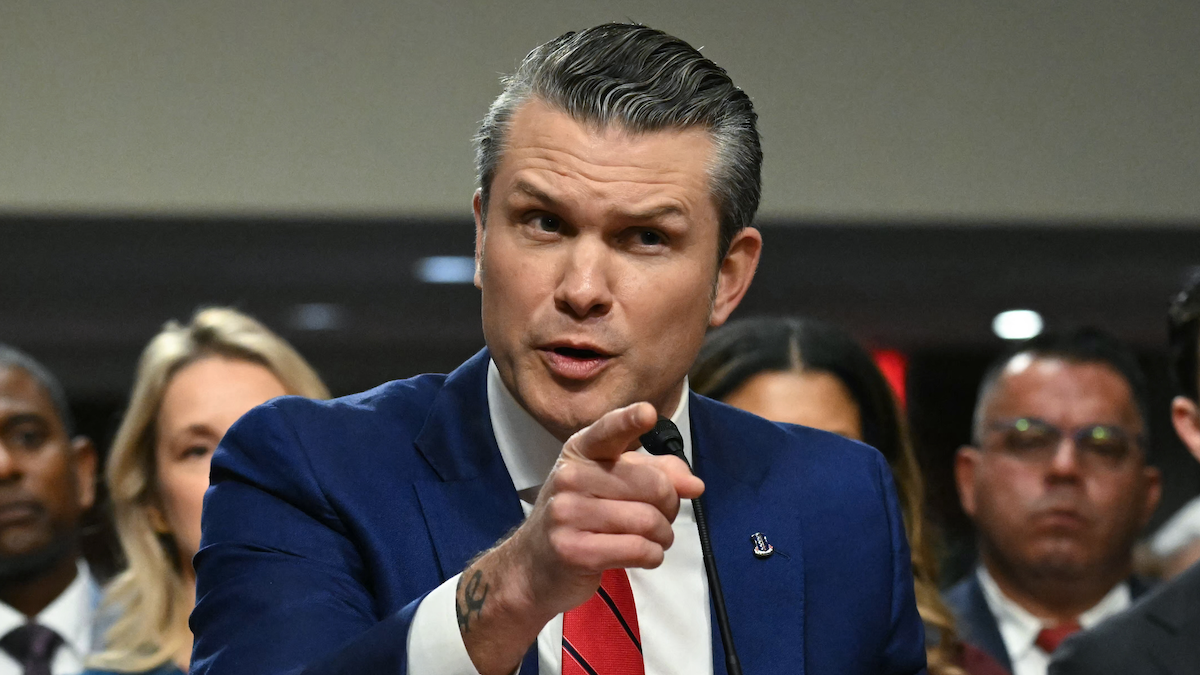Appeals panel looks for middle ground on CFPB dismantling
A federal appeals panel seems inclined to find a middle ground as it weighs whether to pause an order blocking the Trump administration from effectively dismantling the Consumer Financial Protection Bureau (CFPB) as the administration appeals. The three-judge panel on the U.S. Court of Appeals for the District of Columbia Circuit expressed concern over...

A federal appeals panel seems inclined to find a middle ground as it weighs whether to pause an order blocking the Trump administration from effectively dismantling the Consumer Financial Protection Bureau (CFPB) as the administration appeals.
The three-judge panel on the U.S. Court of Appeals for the District of Columbia Circuit expressed concern over the CFPB’s apparent shuttering but signaled openness to staying parts of a lower judge’s order insulating the agency from further cuts.
The district judge determined the administration was engaged in a “concerted, expedited effort” to shut the CFPB down “entirely” before her court intervened.
“If all of that is right, how can we possibly give you a full stay pending appeal?” said Judge Gregory Katsas, an appointee of President Trump.
CFPB Director Russell Vought was sued by the National Treasury Employees Union and other groups earlier this year over the agency’s apparent dismantling. After he was tapped to serve in the role, he temporarily shut down the CFPB’s headquarters, directed employees to halt work and terminated dozens of probationary employees.
The challengers claim those efforts violated the separation of powers between the branches of government because the CFPB was created by Congress and has statutorily required duties.
Jennifer Bennett, a lawyer for the plaintiffs, said Wednesday that Jackson’s findings show the Trump administration was “ready and willing, and wanted to” dismantle the agency altogether.
“The only thing that stopped the defendants from fully shutting down the agency was the district court's intervention,” she said.
U.S. District Judge Amy Berman Jackson blocked the stop-work orders, firing of employees and destruction of any CFPB records last month. She also ordered the reinstatement of previously terminated workers and the recission of any “wholesale” contract cancellations issued on or after Feb. 11.
However, the government insists it has no plans to wind the agency down.
DOJ lawyer Eric McArthur argued that President Trump campaigned on plans to “significantly streamline and reform” the federal workforce. Jackson’s order “improperly intrudes” on the president’s executive power to manage “internal affairs,” he said.
“The president ran on and announced that his intent was to shut down CFPB, and I take it that you are disavowing that that's the plan?” asked Judge Cornelia Pillard, an appointee of former President Obama.
“We are absolutely disavowing that that is the plan,” McArthur said, qualifying the remark with the suggestion that Trump might seek to shutter the agency with Congress’s blessing.
He pointed to the nomination of Jonathan McKernan to serve as CFPB director as evidence the agency isn’t at risk of shuttering.
Judge Neomi Rao, a Trump appointee, seemed swayed by the government’s contention that it would not eliminate the agency. She suggested that if the district court’s reason for issuing a preliminary injunction was to stop CFPB’s dismantling, then it’s likely made moot by that submission.
However, Pillard seemed primed to err on the side of caution. She said the “fundamental harm” of the CFPB’s dismantling would be to the public, noting the agency was established by Congress to “protect” it from financial harm.
Altogether, the appeals judges seemed inclined to send the injunction back to Jackson for tailoring, suggesting it may be too sweeping but should not be entirely thrown out.
Katsas raised concern over the provision of Jackson’s order barring reductions-in-force noting an agency could conduct layoffs that are “perfectly consistent” with meeting its statutory obligations. He said that the lower court was “rightly concerned” about the termination of all employees and cancellation of every contract but indicated that the actual order goes beyond those sweeping worries.
Bennett said that the plaintiffs would be amenable to a more tailored injunction if the government could provide an option that would preserve the status quo. McArthur, meanwhile, said the government “really cannot live with” the status quo.
“It seems like everybody thinks that the district judge should have a crack at some kind of narrowing,” Katsas said.











































































